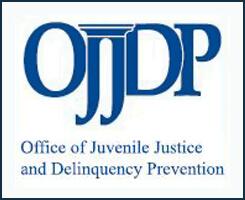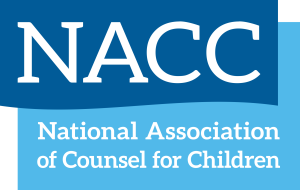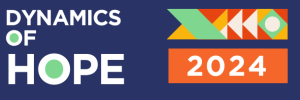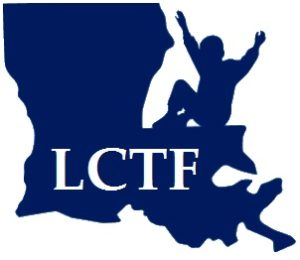Calendar

Thank you so much for your interest in our camp! We’ll be in touch by June 14 to let you know whether we are able to offer a spot to your camper! If you don’t receive an email from us, please don’t hesitate to contact us at tmerrick@fhfnola.org (unfortunately, our emails sometimes go to spam). The camp cost is $250 per week. A two-week-long summer camp from 10 a.m. to 3 p.m. and we focus on disability justice, celebrating neurodiversity, and simply encouraging everyone to explore and have fun in a safe, supportive environment! We welcome all applications. This 10-day camp is designed for neurodiverse individuals to have an opportunity to explore coding with Texas Instruments Technology. Activities include daily competitions involving games, robotic vehicles, microcontrollers, calculators, and PYTHON programming. We aim to create a low-pressure, sensory-friendly environment that supports all types of communication.

This webinar, hosted by Justice and Joy National Collaborative, will provide an overview of intersectionality and discuss how it can be used as a lens to better observe and address overlapping systems of discrimination and disadvantage. The presentation will discuss how intersectionality can reveal the complications and barriers faced by individuals who belong to multiple marginalized groups and why taking intersectionality into account is vital in creating programs and opportunities for girls of color.

Join other child-serving professionals to create a plan of action for preventing child sexual abuse of youth in your care.
Learn the signs and symptoms of child sexual abuse, mandated reporter and stakeholder responsibilities. Identify strengths and weaknesses of current prevention practices, and develop an action plan, using the Strategic Prevention Dashboard, for your organization.
This course is open to all members of child serving organizations such as preschool, after-school care, summer camps, church groups, athletic associations or others responsible for the care of minors.
Upon completion of this training, you will be able to:
- Identify signs and symptoms of child sexual abuse
- Identify community stakeholders and define their roles in preventing child sexual abuse
- Define Mandated Reporter and their legal and ethical responsibilities
- Identify strengths and weaknesses of stakeholder current prevention practices
- Create an action plan to improve the prevention of child sexual abuse within your organization/agency (internally) and throughout your community (externally)

In this webinar, presenters will discuss the critical multidisciplinary needs of children who have been prenatally exposed to a substance and their families and articulate ways in which current policies, initiatives, and workforce development can be leveraged through multi-system collaboration to enhance care and outcomes. Drawing from state approaches to implement the plans of safe care requirement of CAPTA legislation, the presenters will discuss the need for additional implementation support and federal technical assistance, multi-system collaboration, and equitable supports to improve outcomes.
This program has been approved for one (1) Continuing Education Unit (CEU) by the NASW Washington State Chapter. Licensed Social Workers, Marriage and Family Therapists, and Mental Health Counselors are eligible. Provider number is #1975-176. There is a $20 fee for CEUs for non-members and a $10 fee for CWLA members. If you are interested in CEUs, please e-mail gaugustin@cwla.org for details.

In this webinar, presenters will discuss the critical multidisciplinary needs of children who have been prenatally exposed to a substance and their families and articulate ways in which current policies, initiatives, and workforce development can be leveraged through multi-system collaboration to enhance care and outcomes. Drawing from state approaches to implement the plans of safe care requirement of CAPTA legislation, the presenters will discuss the need for additional implementation support and federal technical assistance, multi-system collaboration, and equitable supports to improve outcomes.

Legal advocacy for children, youth, parents, and kin is a specialized area of law which demands ongoing interdisciplinary training, education, and skill-building. NACC’s annual National Child Welfare Law Conference is designed to meet these demands. Our conference is a premier continuing legal education and community-building event for practitioners and policy advocates in child welfare, juvenile justice, and family law.
More than 46 years of experience has gone into producing this annual training and networking experience. Don’t miss this opportunity to come together with your fellow advocates to learn, to network, and be inspired to take your advocacy to the next level. Join the national community of multidisciplinary advocates working to improve systems serving children, youth, parents, and kin.
Over several days, leading experts from the fields of law, medicine, mental health, immigration, social work, education, and more will expand your understanding of child welfare law, explore its intersection with other fields, and provide practical tools to help further your practice and achieve the best possible outcomes for children, youth, parents, and kin. Whether you are a new attorney or an advanced practitioner, this informative and engaging program will advance your practice.

Team Dynamics is gathering national experts to form a new and exciting virtual conference series focused on resiliency, determination, community and individual skills for successful survival of trauma, poverty, and other challenges that make forward progress difficult.
Our organization provides conference management, training and communications for many government and nonprofit organizations. We hope you will attend, learn something that you can use immediately and pass the goodness forward.
If you have questions about The Dynamics of Hope Series – please do not hesitate to give us a call or send an email to us.
Susan Shaffette, CGMP – susan@teamdyn.com
Dr. Sharon Delvisco, LMSW, CGMP – sharon@teamdyn.com

Team Dynamics is gathering national experts to form a new and exciting virtual conference series focused on resiliency, determination, community and individual skills for successful survival of trauma, poverty, and other challenges that make forward progress difficult.
Our organization provides conference management, training and communications for many government and nonprofit organizations. We hope you will attend, learn something that you can use immediately and pass the goodness forward.
If you have questions about The Dynamics of Hope Series – please do not hesitate to give us a call or send an email to us.
Susan Shaffette, CGMP – susan@teamdyn.com
Dr. Sharon Delvisco, LMSW, CGMP – sharon@teamdyn.com

The goal of the Prevention Convention is to grow momentum toward a unified vision for prevention in Florida. The Ounce of Prevention Fund of Florida, Prevent Child Abuse Florida, and the Florida Center for Early Childhood aim to inspire systems innovation that supports families and helps them thrive in all aspects of life. Our featured speakers and partners will have attendees considering the full spectrum of factors that affect prenatal care issues and family well-being; everything from affordable, high-quality childcare to stable housing, and accessible health care.

